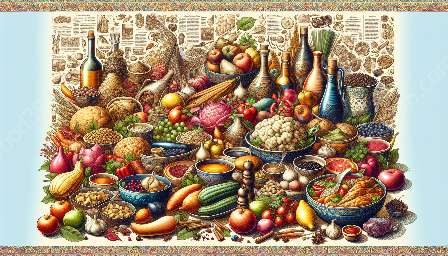Ancient Egypt played a vital role in the development of agriculture, influencing early agricultural practices and the evolution of food cultures. The rich history of Egypt's agricultural advancements and its impact on the origin and evolution of food culture is a fascinating journey that has shaped human civilization.
Early Agricultural Practices in Ancient Egypt
Ancient Egyptians were pioneers in the field of agriculture. The Nile River, with its predictable annual flooding, provided fertile soil for farming. The ancient Egyptians developed sophisticated irrigation methods to harness the waters of the Nile, enabling them to cultivate a variety of crops throughout the year. They mastered the art of plowing, sowing, and harvesting, laying the foundation for modern agricultural techniques.
Domestication of Crops and Animals
Ancient Egyptians were among the first to domesticate plants and animals. They cultivated grains like wheat and barley, along with vegetables such as onions, lettuce, and cucumbers. The domestication of animals like cattle, sheep, and goats allowed them to establish a thriving agricultural economy.
The Impact on Food Cultures
The surplus food produced through advanced agricultural practices led to the growth of urban centers and a complex social structure. The abundance of food allowed for the specialization of labor, leading to the emergence of artisans, merchants, and other non-farming professions. This surplus also played a crucial role in the development of food cultures, as it provided an opportunity for culinary innovation and the creation of diverse cuisines.
Origin and Evolution of Food Culture
Ancient Egypt's agricultural advancements significantly contributed to the origin and evolution of food culture. The cultivation of a wide variety of crops and the domestication of animals resulted in a rich culinary landscape. The use of herbs, spices, and different cooking techniques contributed to the development of distinct food traditions. Moreover, the practice of food preservation, such as drying and fermentation, allowed the ancient Egyptians to store surplus produce and create a diverse array of food offerings.
In conclusion, the role of ancient Egypt in the development of agriculture was transformative, shaping early agricultural practices and influencing the evolution of food cultures. The impact of Egypt's agricultural innovations on the origin and evolution of food culture is profound and continues to resonate through human history, contributing to the diversity and richness of global food traditions.


